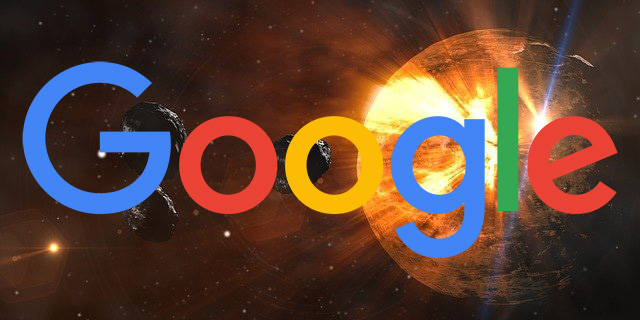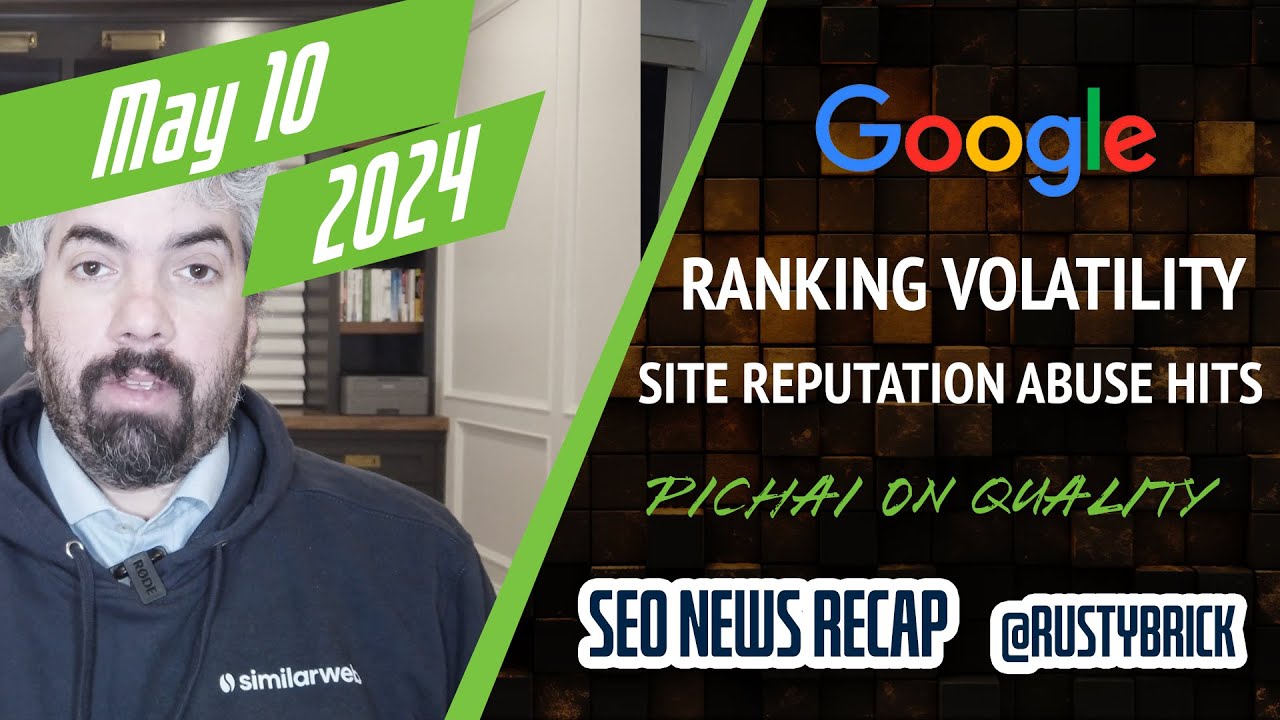SEARCHENGINES
Swapping Out Your Blog For An App Landing Page Will Impact Your Google Rankings

It is not too uncommon to see app developers, before the app is launched, to launch a blog on the home page of the app’s domain name. This is done to gain traction on the domain name before the official app is actually live. But will moving the blog off the home page and replacing that with the app details on launch impact the site’s overall SEO and ranking in Google?
The answer is yes.
John Mueller of Google was asked this on Reddit where the question was:
Will changing the home page from the blog page to an app landing page damage SEO?
For some context, I still building the site; it has not launched. Right now the site is just a blog, which is acting as an MVP for an app I’m designing. Eventually, the home page will act as landing page for the actual app.
Will having the home page just be the blog for now, but change it to the landing page in the future, damage the SEO?
John Mueller’s response:
Sure it’ll change “SEO” (whatever you consider that to be), but if the app is what you want people to do, then focus on that.
But does that mean you shouldn’t try to build out the domain name of an app or product before it officially launches? I wouldn’t say it means that. It means that the rankings and SEO will change if you swap out the pages. It might make sense more to build a coming soon type of home page, with a blog on the inner structure. You can show blog posts on the lower portion of that home page and maybe even lower those blog posts down on the page when the official app page launches. But building up the domain name with content relevant to the overall app is not a bad strategy – it is probably recommended.
But yet, making drastic changes to the content of the home page will impact how that home page ranks in Google Search.
Forum discussion at Reddit.
Source: www.seroundtable.com
SEARCHENGINES
Mikhail Parakhin Confirms He Is No Longer Working On Copilot At Microsoft

Mikhail Parakhin, the former head of Bing Search and Microsoft Advertising at Microsoft, confirmed he is no longer working on the Copilot project. He stepped down as the head of Bing Search and Microsoft Advertising weeks ago after Microsoft hired Mustafa Suleyman as the CEO of AI at Microsoft.
We knew Mikhail Parakhin was planning to work on something new but now Mikhail Parakhin confirmed that he is no longer working on Copilot.
He said on X, “Not working on Copilot anymore, onto new things.”
I did follow up and asked if “onto new things” means new things within Microsoft or new things at a new company but I did not hear back on that. His LinkedIn profile still shows he is at Microsoft.
Here are those posts:
I know, those were the best 🙂
— Mikhail Parakhin (@MParakhin) May 9, 2024
Not working on Copilot anymore, onto new things.
— Mikhail Parakhin (@MParakhin) May 9, 2024
I am super interested in what Mikhail is working on now and I suspect he will tell us soon.
I deeply miss his transparent and frequent posts about what Microsoft is working on with Copilot and Bing Search…
Forum discussion at X.
SEARCHENGINES
Daily Search Forum Recap: May 10, 2024
Here is a recap of what happened in the search forums today, through the eyes of the Search Engine Roundtable and other search forums on the web.
Google says site reputation abuse is not about links, it is about content. Google Local Service Ads ranking removed proximity as a ranking signal. Google Shopping may soon tell searchers how many shoppers purchased at your e-commerce site. Google Local panels now can show the owner of the business. Mikhail Parakhin from Microsoft confirmed he is no longer working on Copilot. Plus, I posted the weekly SEO video recap.
Search Engine Roundtable Stories:
-
Google: Site Reputation Abuse Isn’t About Linking
Danny Sullivan, Google’s Search Liaison, made it crystal clear that the site reputation abuse policy has zero to do with linking. This means that who you link to and/or who links to you has no impact on this new policy that Google began enforcing with manual actions earlier this week. -
Google May Show How Many Shoppers Purchased On Your E-Commerce Site
Google has sent some Google Merchant Center e-commerce site managers notifications that a new annotation may begin to show up in the search results next to their site’s listing that shows how many searchers purchased on your site. It may read, “1K shopped here recently.” -
Google: Proximity Not A Relevancy Factor For Local Service Ads
Google has updated its Local Services Ads help document on ad rankings to remove the line around “proximity to potential customers’ locations” is a ranking factor for those ads. Ginny Marvin, the Google Ads Liaison, said the document was updated but there was no recent or “sudden change to ranking considerations” to LSA rankings or positions. -
Google Local Panel With Owner Attribute
Google can show the owner of the business in the local panels in the Google search results. I suspect this is not new but I don’t believe I’ve seen this before, where Google will add an “owner” attribute to the local panel. -
Mikhail Parakhin No Longer Working On Copilot At Microsoft
Mikhail Parakhin, the former head of Bing Search and Microsoft Advertising at Microsoft, confirmed he is no longer working on the Copilot project. He stepped down as the head of Bing Search and Microsoft Advertising weeks ago after Microsoft hired Mustafa Suleyman as the CEO of AI at Microsoft. -
Google Ads Cyclone Money Machine
I found this photo funny. It is one of those cyclone money machines that money flies around in, and a person inside is supposed to try to grab as much money as possible. Well, there is a Google Ads logo on this one. Oh, the irony of this photo… -
Search News Buzz Video Recap: Google Search Ranking Volatility, Site Reputation Abuse Enforcement, Pichai On Search Quality, HCU Recovery & More
Google may have had two search ranking algorithm updates, one around May 9th and one around May 3rd. Google began its site reputation abuse policy enforcement this week with manual actions, and it is not about linking. Google said sites may recover from the helpful content update. Sundar Pichai, Google’s CEO, responded…
Other Great Search Threads:
Search Engine Land Stories:
Other Great Search Stories:
Analytics
Industry & Business
Links & Content Marketing
Local & Maps
Mobile & Voice
SEO
PPC
Search Features
Other Search
Feedback:
Have feedback on this daily recap; let me know on Twitter @rustybrick or @seroundtable, on Threads, Mastodon and Bluesky and you can follow us on Facebook and on Google News and make sure to subscribe to the YouTube channel, Apple Podcasts, Spotify, Google Podcasts or just contact us the old fashion way.
SEARCHENGINES
Google Search Ranking Volatility, Site Reputation Abuse Enforcement, Pichai On Search Quality, HCU Recovery & More

For the original iTunes version, click here.
Google may have had two search ranking algorithm updates, one around May 9th and one around May 3rd. Google began its site reputation abuse policy enforcement this week with manual actions, and it is not about linking. Google said sites may recover from the helpful content update. Sundar Pichai, Google’s CEO, responded to search quality issues in an interview. Google is now hiding the number of search results under the tools menu. Google will remove the disavow link tool at some point. Gemini stopped linking to sources. Google renamed AI Answers back to AI Overview. Google is testing a new Notes button in Search. Google SGE said you should drink urine to pass a kidney stone. Google has product review summary labels. Google may show searchers how many people purchased on your e-commerce site. Google Ads new Performance Max for marketplaces. Rumors of 25% of Google Ads accounts being audited are false. Bing is testing clearer distinctions between free and paid search results. Google LSAs ranking help document removed that proximity is used for ranking. Google Local Business Profiles is testing a new review listing. Google Search is testing showing only local results for near me queries. Google Analytics gained Google Ads conversion performance beta reporting. Statcounter said Google didn’t lose market share, it was a bug in the reporting. That was the search news this week at the Search Engine Roundtable.
Sponsored by Similarweb, the all-in-one- strategic SEO software. Get clarity of the SEO landscape through competitor analysis, keyword research, rank tracking, SERP insights and more. With industry-leading traffic and keyword data, based on real user journeys, Similarweb gives SEO professionals the whole picture so they can strategize smartly and drive sustainable business growth.
Make sure to subscribe to our video feed or subscribe directly on iTunes, Apple Podcasts, Spotify, Google Podcasts or your favorite podcast player to be notified of these updates and download the video in the background. Here is the YouTube version of the feed:
Search Topics of Discussion:
Please do subscribe on YouTube or subscribe via iTunes or on your favorite RSS reader. Don’t forget to comment below with the right answer and good luck!
-

 PPC5 days ago
PPC5 days agoHow the TikTok Algorithm Works in 2024 (+9 Ways to Go Viral)
-

 MARKETING6 days ago
MARKETING6 days agoA Recap of Everything Marketers & Advertisers Need to Know
-

 MARKETING5 days ago
MARKETING5 days agoHow To Protect Your People and Brand
-

 SEO6 days ago
SEO6 days agoBlog Post Checklist: Check All Prior to Hitting “Publish”
-

 SEO4 days ago
SEO4 days agoHow to Use Keywords for SEO: The Complete Beginner’s Guide
-

 SEARCHENGINES6 days ago
SEARCHENGINES6 days agoGoogle Started Enforcing The Site Reputation Abuse Policy
-

 PPC6 days ago
PPC6 days agoHow to Craft Compelling Google Ads for eCommerce
-

 MARKETING6 days ago
MARKETING6 days agoElevating Women in SEO for a More Inclusive Industry














You must be logged in to post a comment Login